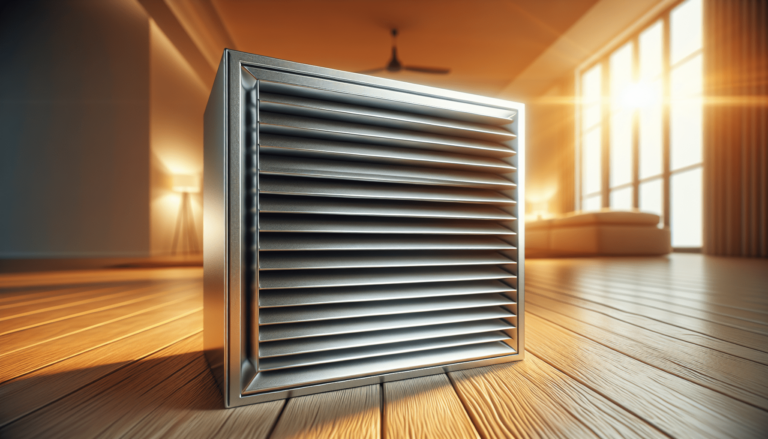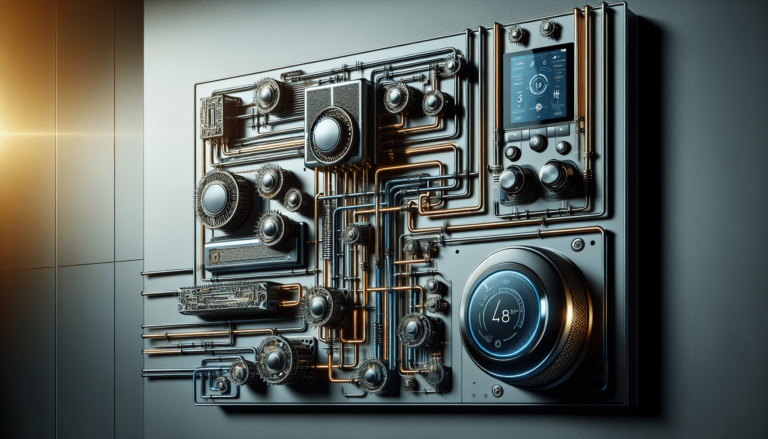

HVAC Services
Get Professional Repairs From The Area's Trusted HVAC Technicians. Ask About Our Services! We Offer Professional Heating & Cooling System Repairs And Guarantee Long-Lasting Results.
Got Question? Call us: (850) 678-2665Financing
Local HVAC Repair Regulations: Everything You Need to Know
Looking for information on local HVAC repair regulations? Get all the details you need to know about licensing requirements, permits, and more in this comprehensive post.
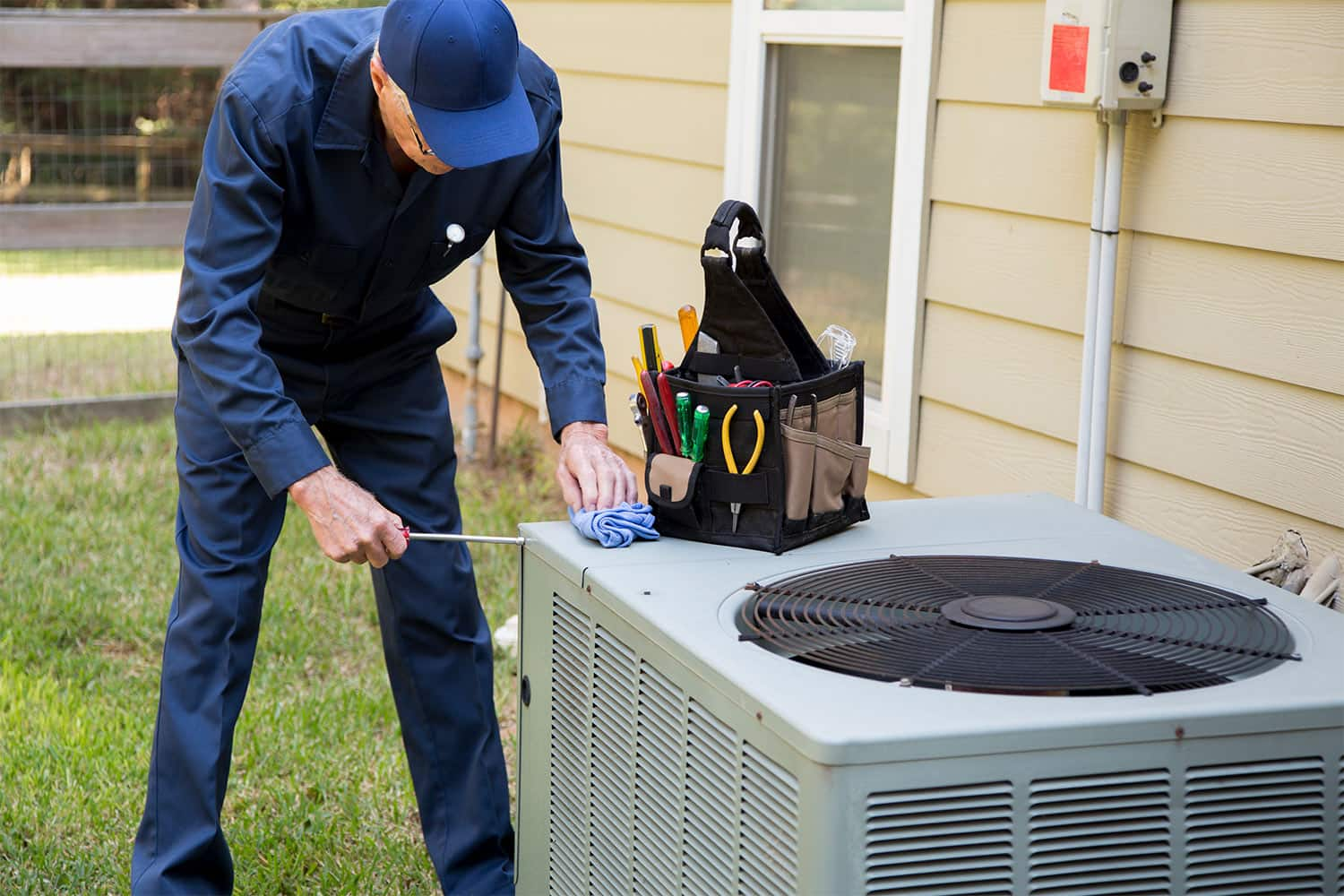
Are you curious about the regulations and guidelines surrounding local HVAC repair? Look no further! In this article, we will provide you with everything you need to know about the regulations that govern HVAC repair in your area. From understanding the licensing requirements to knowing what permits are necessary, we’ve got you covered. Stay tuned for a comprehensive overview of the local HVAC repair regulations that will help you navigate this industry with confidence.
Licensing Requirements
When it comes to working in the HVAC repair industry, it is important to understand the licensing requirements. Different types of licenses may be required depending on the specific work you will be performing. Some common types of licenses include:
-
Contractor’s License: This license is required for individuals or businesses that are performing HVAC repair and installation work. It ensures that the contractor has the necessary skills and knowledge to complete the job safely and effectively.
-
Technician’s License: HVAC technicians are individuals who work under the supervision of a licensed contractor. They may be required to have a separate license in order to perform certain tasks, such as handling refrigerants.
-
Specialty License: In some cases, specialized licenses may be required for specific types of HVAC work, such as solar heating or geothermal systems. These licenses typically require additional training and certification.
To qualify for a license, there are usually specific qualifications that must be met. These qualifications may include:
-
Minimum age requirement: In most states, individuals must be at least 18 years old to obtain an HVAC license. This ensures that individuals have the maturity and responsibility necessary to perform the work safely.
-
Education and experience: Many states require a certain level of education and/or experience in the HVAC industry before issuing a license. This ensures that individuals have the necessary knowledge and skills to perform the work effectively.
-
Examination: In order to obtain a license, individuals may be required to pass an examination. This exam tests the individual’s knowledge of HVAC repair and installation techniques, as well as safety regulations and code compliance.
Once you meet the qualifications, you can begin the application process for your HVAC license. The application process may vary depending on the state or local licensing authority, but generally includes the following steps:
-
Complete the application form: Fill out the required application form, providing all necessary information such as your name, contact information, and any relevant education or experience.
-
Provide supporting documentation: In addition to the application form, you may be required to submit supporting documentation such as proof of education, work experience, or any necessary certifications.
-
Pay the application fee: Most licensing authorities require an application fee to cover the cost of processing your application. The fee amount will vary depending on the licensing authority and the type of license you are applying for.
-
Schedule and pass any required exams: If your license requires an examination, you will need to schedule and pass the exam before your license can be issued. Be sure to study and prepare for the exam to increase your chances of success.
Once your application is approved and you have passed any required exams, your HVAC license will be issued. It is important to note that HVAC licenses are typically valid for a certain period of time, often one to two years. To maintain your license, you will need to renew it before it expires. The renewal process may include additional fees and continuing education requirements to ensure that you stay updated on the latest industry standards and regulations.
Permitting Process
In addition to obtaining the necessary licenses, HVAC contractors may also need to navigate the permitting process. Permits are usually required for HVAC installations and modifications to ensure compliance with local building codes and safety regulations. Here are some key aspects of the permitting process:
When Permits are Required
Permits are generally required for any major HVAC installation or modification work. This may include installing a new HVAC system, making significant changes to an existing system, or adding ductwork or ventilation. Minor repairs and maintenance may not require a permit, but it is always best to check with the local building department to confirm the requirements.
Permit Application
To apply for a permit, you will need to complete a permit application form. The form will typically ask for details about the HVAC work you will be performing, such as the type of equipment being installed or modified, the location of the work, and any other pertinent information. You may also be required to provide supporting documentation, such as system specifications or engineering plans.
Inspections
Once your permit application is approved, you will need to schedule and pass inspections at various stages of the HVAC project. Inspections are typically conducted by a building department representative or inspector to ensure that the work is being done in compliance with the applicable building codes and safety standards. Common inspection stages for HVAC projects include rough-in inspection, final inspection, and sometimes additional inspections throughout the project.
Costs and Fees
There are costs associated with the permitting process. These costs can vary depending on the scope of the HVAC project and the local jurisdiction. Permit fees are typically based on the value of the project or the number of fixtures being installed or modified. In addition to these fees, there may be additional costs for plan review, inspections, and any necessary revisions or re-inspections.
It is important to note that working without the necessary permits can result in serious consequences, such as fines, project delays, or even having to redo the work to meet code requirements. It is always best to consult with the local building department to understand the specific permitting requirements for your HVAC project.
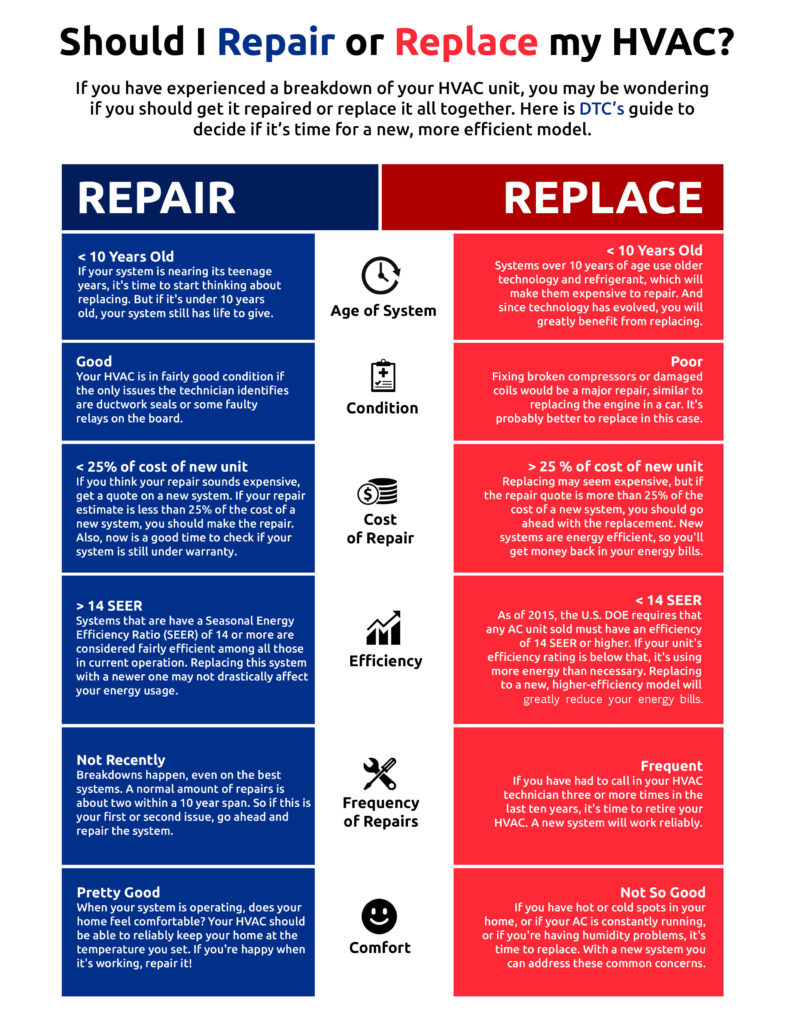
This image is property of www.dtctexas.com.
HVAC Repair Standards
When it comes to HVAC repair and maintenance, there are certain standards that must be upheld to ensure the quality of workmanship, use of appropriate materials and equipment, adherence to safety regulations, and consideration for environmental impacts. Here are some key aspects of HVAC repair standards:
Quality of Workmanship
HVAC repair work should be performed with a high standard of workmanship. This includes following industry best practices and guidelines to ensure that the repairs are done correctly and effectively. Proper installation techniques, accurate troubleshooting, and attention to detail are all important aspects of maintaining a high standard of workmanship in HVAC repairs.
Materials and Equipment
The materials and equipment used in HVAC repairs should meet industry standards and specifications. This includes using appropriate parts, components, and tools that are designed for the specific HVAC system being repaired. Using substandard or incompatible materials can lead to performance issues, premature failures, and potential safety hazards.
Safety Regulations
Safety is paramount in HVAC repair work. HVAC technicians should adhere to all relevant safety regulations and guidelines to protect themselves, their clients, and the surrounding environment. This includes proper handling of electrical components, following safety protocols for working with refrigerants, and ensuring that all repairs are done in compliance with applicable safety codes.
Environmental Considerations
HVAC repairs should also take into account environmental considerations. This may include minimizing refrigerant leaks, properly disposing of old or damaged equipment, and ensuring that repair practices are energy-efficient whenever possible. By considering the environmental impact of HVAC repairs, technicians can contribute to a more sustainable and eco-friendly industry.
Adhering to these HVAC repair standards helps ensure that the repairs are done professionally, efficiently, and in compliance with industry regulations. It also helps maintain the performance, efficiency, and lifespan of HVAC systems, ultimately benefiting both the technicians and their clients.
Code Compliance
Compliance with building codes is essential in the HVAC repair industry to ensure the safety, energy efficiency, and functionality of HVAC systems. There are various aspects of code compliance that HVAC technicians need to be aware of:
Adherence to Building Codes
Building codes regulate the design, construction, and installation of HVAC systems in residential, commercial, and industrial buildings. HVAC technicians are responsible for ensuring that their repairs and installations comply with these codes. This includes considerations such as minimum clearances, proper ventilation, load calculations, and fire safety requirements. Adhering to building codes helps ensure that HVAC systems operate safely and efficiently.
Energy Efficiency Standards
Energy efficiency is a major focus in the HVAC industry. HVAC technicians should be knowledgeable about energy efficiency standards and regulations, such as those set by the U.S. Department of Energy (DOE) and local energy conservation programs. This may include using energy-efficient equipment, implementing proper insulation, and following recommended installation practices that optimize energy performance. By complying with energy efficiency standards, HVAC technicians can help clients save on energy costs and reduce their carbon footprint.
Zoning and Land Use Regulations
Zoning and land use regulations may also impact HVAC repair work. Depending on the location and type of building, there may be zoning restrictions or local ordinances that dictate the use, placement, or appearance of HVAC equipment. HVAC technicians should familiarize themselves with these regulations to ensure that their repairs and installations comply with any zoning or land use requirements.
Public Health and Safety
HVAC systems play a crucial role in maintaining indoor air quality and providing a safe and healthy environment for building occupants. HVAC technicians need to be aware of public health and safety regulations, such as those related to ventilation, filtration, and air quality. Compliance with these regulations helps protect the health and well-being of building occupants by ensuring that HVAC systems operate effectively and efficiently.
By complying with building codes, energy efficiency standards, zoning and land use regulations, and public health and safety requirements, HVAC technicians can provide high-quality and responsible repair services that meet legal and industry standards. This not only ensures the safety and comfort of building occupants but also enhances the reputation and credibility of HVAC professionals.
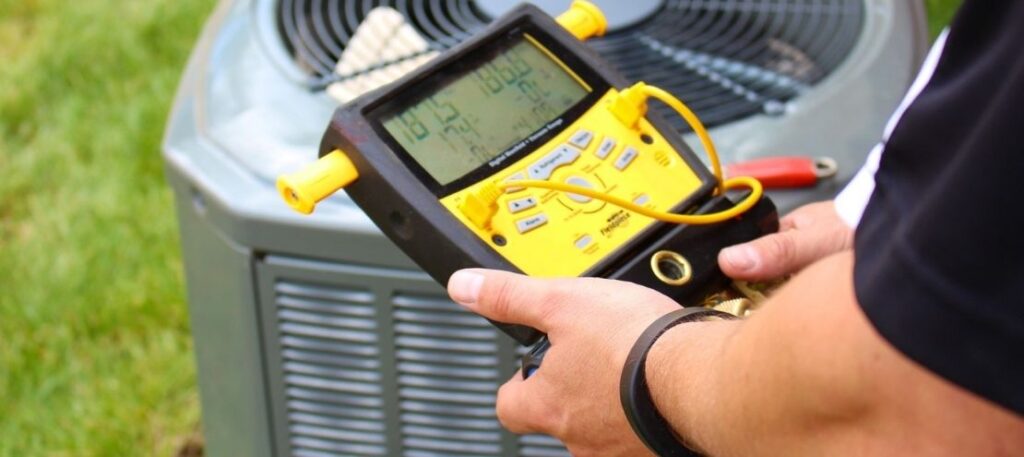
This image is property of terrysacandheating.com.
Insurance and Liability
Insurance and liability play a crucial role in the HVAC repair industry by providing protection for both HVAC contractors and their customers. Understanding the insurance and liability requirements is essential for HVAC professionals. Here are some key aspects to consider:
Liability Insurance Requirements
Liability insurance is crucial for HVAC contractors as it provides coverage for property damage or personal injury claims that may arise during HVAC repair work. Most states and jurisdictions require HVAC contractors to carry liability insurance with minimum coverage limits. This insurance protects both the contractor and the customer in the event of an accident or damage caused during the repair process.
Worker’s Compensation Insurance
Worker’s compensation insurance is another important type of coverage for HVAC contractors. This insurance provides benefits to employees who are injured on the job, including medical expenses, rehabilitation costs, and lost wages. Many states require HVAC contractors to carry worker’s compensation insurance to protect their employees and ensure that they receive proper compensation in case of a work-related injury.
Bonding Requirements
In some cases, HVAC contractors may be required to obtain a surety bond as part of their licensing requirements. A surety bond provides financial protection to customers in the event that the HVAC contractor fails to fulfill their contractual obligations or causes damage during the repair process. It offers reassurance to customers that they will be compensated if there are any issues with the HVAC repair work.
Protection for Customers
Insurance and liability coverage not only protect HVAC contractors but also provide peace of mind for customers. Knowing that an HVAC contractor is properly insured and compliant with insurance requirements gives customers confidence that they will be protected in the event of any damages or accidents that may occur during the repair process. It also demonstrates the professionalism and responsibility of the HVAC contractor.
Understanding the insurance and liability requirements and ensuring that the appropriate coverage is in place is essential for HVAC contractors. By having the necessary insurance and liability protection, contractors can operate with peace of mind and provide reliable repair services to their customers.
Dispute Resolution
Disputes may occasionally arise between HVAC contractors and their clients. Having a clear understanding of the dispute resolution options can help resolve issues in a fair and efficient manner. Here are some commonly used methods of dispute resolution:
Mediation
Mediation is a voluntary and confidential process that involves a neutral third party, known as a mediator, helping the parties in dispute reach a mutually acceptable agreement. The mediator facilitates communication and assists in exploring potential solutions. Mediation allows for open discussion and collaboration, often leading to more satisfactory outcomes for both parties. It is a less formal and usually less costly alternative to legal action.
Arbitration
Arbitration is a more formal alternative to mediation and involves the parties in dispute presenting their cases to a neutral third party, known as an arbitrator. The arbitrator reviews the evidence presented and makes a legally binding decision, known as an arbitration award. Arbitration can be a quicker and less expensive alternative to legal action, as compared to traditional lawsuits. However, it usually does not allow for the same opportunities for negotiation as mediation.
Legal Actions
In some cases, disputes may not be resolved through mediation or arbitration, and legal action may be necessary. This typically involves filing a lawsuit in a court of law. Legal action can be a lengthy and costly process, but it may be necessary to protect one’s rights and seek resolution in certain situations. It is important to consult with legal professionals to understand the options and potential implications before proceeding with legal action.
Consumer Complaints
In addition to the above dispute resolution methods, customers can also file complaints with relevant consumer protection agencies or licensing authorities. These agencies may investigate the complaint and take appropriate action to resolve the dispute. Consumers should always document their concerns and any attempts made to address the issue with the HVAC contractor before filing a complaint.
It is always best to try to resolve disputes through amicable means, such as mediation or negotiation, before pursuing more formal and costly options. Clear communication, active listening, and a willingness to find common ground are essential in achieving a satisfactory resolution for all parties involved.
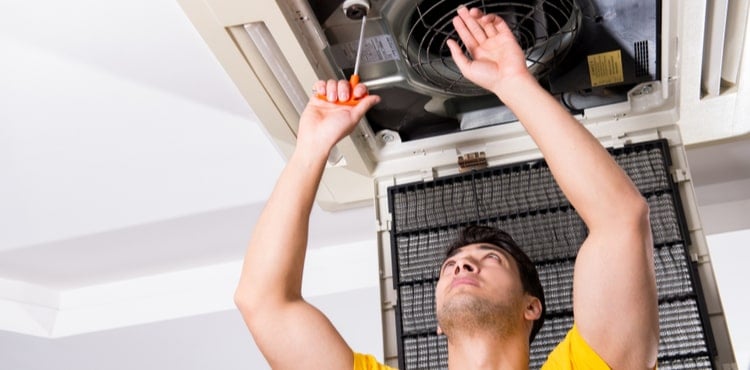
This image is property of www.insureon.com.
Local Licensing Authorities
There are several local licensing authorities that oversee and regulate the HVAC repair industry. These authorities play a crucial role in ensuring that contractors and technicians meet the necessary licensing requirements and adhere to industry standards. Here are some commonly encountered licensing authorities:
Department of Consumer Affairs
The Department of Consumer Affairs is responsible for overseeing consumer protection and regulating various industries, including HVAC repair. They often handle the licensing and registration of HVAC contractors and technicians, as well as addressing consumer complaints and ensuring compliance with relevant laws and regulations.
Building Department
The building department is typically responsible for issuing building permits and conducting inspections to ensure that HVAC repairs and installations comply with local building codes and safety regulations. They also work closely with other departments, such as plumbing and electrical, to ensure the coordination and compliance of multiple systems within buildings.
Environmental Protection Agency
The Environmental Protection Agency (EPA) plays a role in regulating aspects of HVAC repair related to refrigerants and environmental impacts. The EPA enforces regulations such as the Clean Air Act, which governs the handling, disposal, and use of refrigerants. HVAC technicians are required to be certified in refrigerant handling through the EPA’s Section 608 certification program.
State Contractors Board
State Contractors Boards are responsible for overseeing the licensing, registration, and regulation of contractors within their respective states. They ensure that contractors meet the necessary qualifications, have the required insurance and bonding, and comply with state laws and regulations. State Contractors Boards often have a specific division or section dedicated to HVAC contractors.
It is important for HVAC professionals to be familiar with the specific licensing authorities in their jurisdiction and to maintain compliance with their regulations. Staying informed about licensing requirements and keeping up with any updates or changes is essential to ensure legal operation and professional integrity.
Enforcement and Penalties
Enforcement of HVAC repair regulations and licensing requirements is necessary to maintain industry standards, protect consumers, and promote fair competition. Authorities responsible for enforcement have various tools and methods to ensure compliance. Here are some aspects of enforcement and potential penalties:
Investigations and Audits
Authorities may conduct investigations and audits to ensure that HVAC contractors and technicians are complying with licensing requirements, permit regulations, and industry standards. These investigations can involve reviewing documentation, interviewing contractors and technicians, and inspecting job sites to verify compliance. These activities help identify any violations and ensure a level playing field within the industry.
Violation Notices
When violations are identified, authorities may issue violation notices or citations to the responsible parties. These notices outline the specific violations and may include instructions for corrective actions or further consequences if the violations are not addressed. Violation notices serve as a formal notice of non-compliance and can be a precursor to further penalties.
License Suspension or Revocation
In cases of serious or repeated violations, authorities may suspend or revoke HVAC licenses. License suspension means that the HVAC professional is temporarily prohibited from conducting HVAC repair work, while license revocation entails a complete termination of their license. These actions are taken to protect consumers and ensure that non-compliant professionals do not continue to operate.
Fines and Penalties
HVAC contractors and technicians found to be in violation of regulations may be subject to fines and penalties. The amount of fines or penalties can vary depending on the severity of the violation and the jurisdiction. Fines are often intended to serve as a deterrent, encouraging compliance with regulations and ensuring that non-compliant parties bear the consequences of their actions.
Enforcement and penalties aim to maintain the integrity of the HVAC repair industry, protect consumers from unqualified or unethical contractors, and promote fair competition. It is essential for HVAC professionals to understand and respect the regulations and licensing requirements to avoid potential enforcement actions and related penalties.
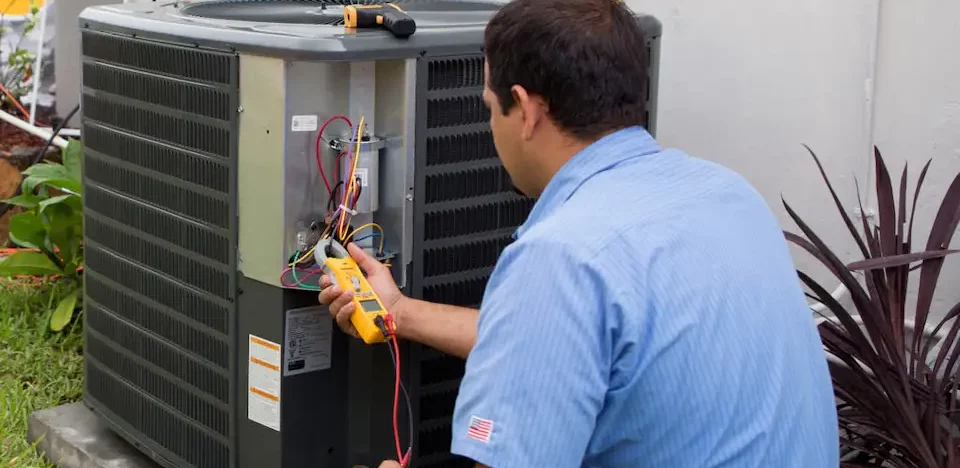
This image is property of bowmanmechanicalservices.com.
Training and Certification
Training and certification are essential for HVAC professionals to acquire the necessary knowledge and skills for successful careers in the industry. Here are some key aspects of training and certification:
Educational Requirements
Many HVAC licensing authorities and employers require a certain level of education for individuals seeking to enter the industry. This may include completion of a high school diploma or equivalent. Some vocational schools, community colleges, or trade schools also offer HVAC programs that provide specialized training in heating, ventilation, air conditioning, and refrigeration systems.
Apprenticeship Programs
Apprenticeship programs are a valuable option for individuals looking to enter the HVAC industry. These programs combine on-the-job training with classroom instruction, allowing apprentices to learn from experienced technicians while gaining hands-on experience. Apprenticeships typically last around three to five years and involve progressively more complex tasks and responsibilities.
Certification Exams
Certification exams assess the knowledge and skills of HVAC professionals and provide proof of their competency. Well-known certifications include the North American Technician Excellence (NATE) certification and the Refrigeration Service Engineers Society (RSES) certification. These exams cover various aspects of HVAC repair, including system components, electrical systems, refrigeration principles, and troubleshooting techniques.
Continuing Education
Continuing education is crucial in the HVAC industry due to ever-changing technology, regulations, and best practices. HVAC professionals are often required to complete a certain number of continuing education hours to renew their licenses or maintain their certifications. Continuing education opportunities can include workshops, seminars, online courses, or industry conferences.
Training and certification are important for HVAC professionals to stay up to date with the latest industry standards, techniques, and regulations. By investing in ongoing education and certification, HVAC professionals can enhance their skills, expand their career opportunities, and provide high-quality repair services to their clients.
Industry Associations and Resources
Industry associations and resources play a vital role in providing support, networking opportunities, and access to valuable resources for HVAC professionals. Here are some key resources to consider:
Local HVAC Associations
Local HVAC associations bring together professionals in the HVAC industry within a specific region. These associations often provide networking opportunities, educational workshops, and access to industry updates and resources. They can also offer a platform for sharing best practices and discussing common challenges and opportunities within the local HVAC community.
National Industry Organizations
National industry organizations provide broader support and resources for HVAC professionals across the country. These organizations may offer education and training programs, industry conferences, certifications, and publications with up-to-date information on industry trends and regulations. National industry organizations can be valuable sources of information and support for HVAC professionals looking to expand their knowledge and network.
Online Resources
The internet offers a wealth of resources for HVAC professionals, from educational materials to forums and discussion boards. Online resources such as industry blogs, technical guides, and online communities can provide valuable insights and support for HVAC technicians and contractors. Websites of manufacturers and distributors also often offer information on products, technical specifications, and installation guides.
Training Centers
Specialized training centers or vocational schools focused on HVAC repair and installation are valuable resources for individuals looking to enter or advance their careers in the industry. These centers provide hands-on training, access to modern equipment, and experienced instructors who can impart practical skills and knowledge.
Taking advantage of industry associations, national organizations, online resources, and training centers can help HVAC professionals stay informed, connected, and ahead of the curve in an ever-evolving industry. Building a strong professional network and staying up to date with the latest industry developments can contribute to long-term success in the HVAC repair field.
In conclusion, navigating the world of HVAC repair regulations can be complex, but understanding the licensing requirements, permitting process, repair standards, code compliance, insurance and liability requirements, dispute resolution options, and available resources is essential for HVAC professionals. By adhering to industry regulations, providing high-quality services, and staying informed about the latest developments, HVAC professionals can build a reputation for reliability, professionalism, and customer satisfaction.
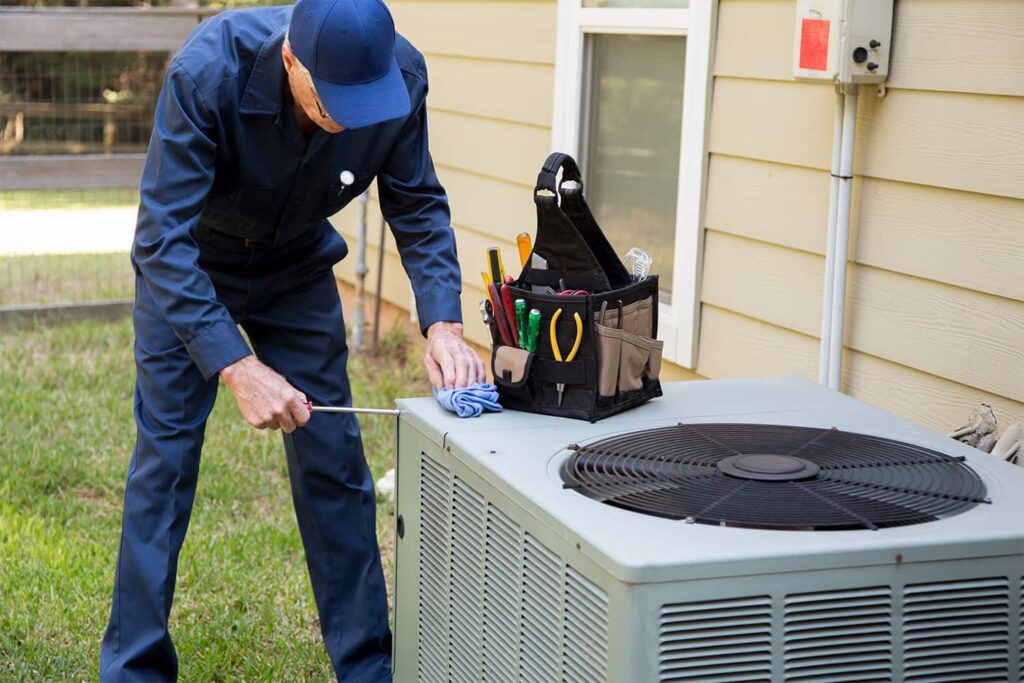
This image is property of media.angi.com.


